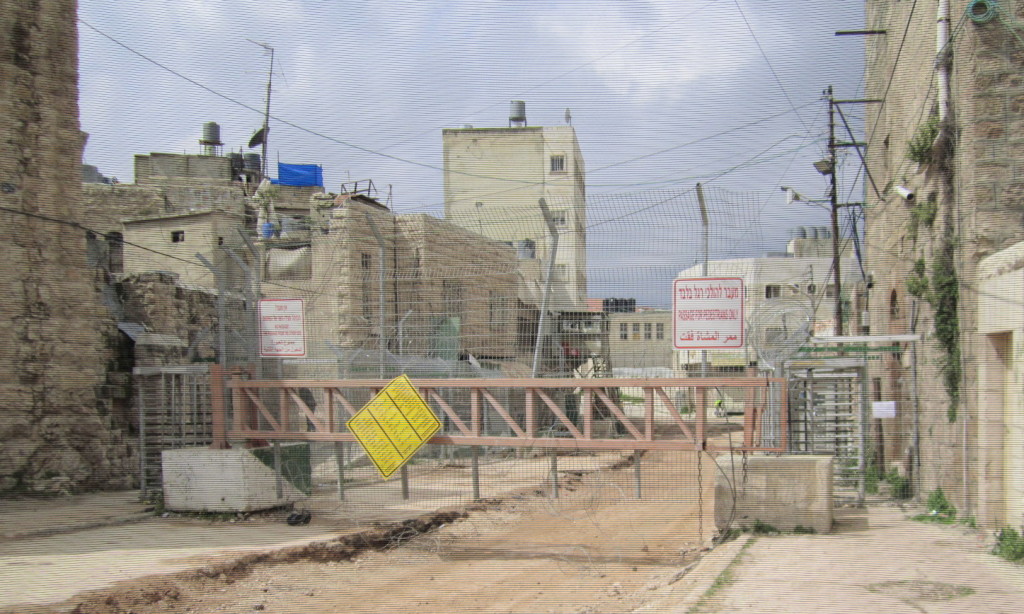Every year when I return to Hebron I have come to expect that I will find the Israeli Military Occupation more entrenched, the people more battered, more resigned. I expect that the Christian Peacemaker Team I have worked with since 1995 will have new challenges to meet. When I rejoined the team in early March, however, the extent of the restrictions on team’s monitoring work at checkpoints during school hours frankly shocked me. Border Police no longer permit us to exit the Old City near our apartment and make the five-minute walk to the Qitoun checkpoint to document how the soldiers treat schoolchildren and teachers passing through. Instead, we must take a fifteen-minute taxi ride over the hills and around to reach a location we can see from the roof of our house.
Category Archives: Articles
Trump, Son of New York*–By Peter Eisenstadt and Robert W. Snyder
 Despite Donald Trump’s unpopularity with New York State voters—71% hold unfavorable views of him, more than any other candidate—it helps to remember that he is the product of New York City and its political culture. His career tells us a lot about changes in a supposedly liberal city and state—especially when it comes to media manipulation, the politics of resentment, and the blurring of public and private interests.
Despite Donald Trump’s unpopularity with New York State voters—71% hold unfavorable views of him, more than any other candidate—it helps to remember that he is the product of New York City and its political culture. His career tells us a lot about changes in a supposedly liberal city and state—especially when it comes to media manipulation, the politics of resentment, and the blurring of public and private interests.
Trump became prominent in New York City during the 1970s, a decade marked by a fiscal crisis, population losses, and shrinking working class and middle class incomes. He rose to power as the liberal city of New Deal New York stumbled. Then he exploited the inequalities, meanness, and celebrity journalism that have risen since its fall.
More Thoughts about Trump—by Peter Eisenstadt

You know that bourne, the undiscovered country from which no traveler returns, that Hamlet spoke about? Well, Hamlet was wrong. Someone just came back. I spoke to him yesterday. We hadn’t chatted since late 2007. He’s a New Yorker, so of course his first questions were about politics.
¬–Who’s mayor of New York City?
—Bill DeBlasio.
—Who?
—Bill DeBlasio.
—Okay, never-mind. Who’s president of the United States?
—Barack Obama
—Heard of him. I guess he defeated Hillary and was re-elected in 2012?
You Can’t Defeat Death, but you Can Defeat Demagogues: Thoughts about Donald Trump—by Peter Eisenstadt
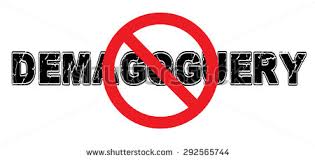 Elizabeth Kübler-Ross is best known for her five stages of grief on dealing with a fatal illness. The first reaction, the first stage of grief, is denial. You can’t believe this is happening. It is only temporary. It is not as bad as it seems. Then comes anger. It is not going away. It is getting stronger; you are getting weaker. It’s spreading. The next stage is bargaining. There is a way to stop this. It can be controlled. It’s just a matter of finding the right way to interact with it, to limit its ambitions. And then there is despair. It’s not going to work. You’re going to lose, and you’re going to lose everything. Finally, there is acceptance. As long as it’s going to happen, you might as well get behind it, if you can, if it lets you. You know it’s going to feel much better than the alternative, which is trying to struggle against it, and be painfully destroyed. Or admit defeat, and remove yourself, as far away as possible, to a place of safety.
Elizabeth Kübler-Ross is best known for her five stages of grief on dealing with a fatal illness. The first reaction, the first stage of grief, is denial. You can’t believe this is happening. It is only temporary. It is not as bad as it seems. Then comes anger. It is not going away. It is getting stronger; you are getting weaker. It’s spreading. The next stage is bargaining. There is a way to stop this. It can be controlled. It’s just a matter of finding the right way to interact with it, to limit its ambitions. And then there is despair. It’s not going to work. You’re going to lose, and you’re going to lose everything. Finally, there is acceptance. As long as it’s going to happen, you might as well get behind it, if you can, if it lets you. You know it’s going to feel much better than the alternative, which is trying to struggle against it, and be painfully destroyed. Or admit defeat, and remove yourself, as far away as possible, to a place of safety.
Unoriginalism: Thoughts about Antonin Scalia –by Peter Eisenstadt
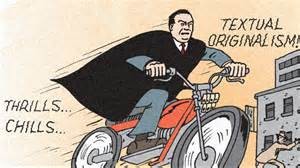
What is the basis of Jewish law? This is not a trick question. The safest answer, surely, is the Torah.
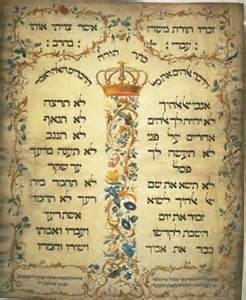 And we here are using Torah as a synonym for the word of God, as found in Tanakh, the holy scriptures. But if you ask what is the definitive code of Jewish law, the best answer is not the Torah, but the Talmud. The Talmud is divided into two main parts, the Mishnah and the Gemara, both written centuries after the final canonization of Tanakh. The Mishnah is remarkably self-contained. It is a discussion of law by sages, providing various opinions, along with some indication of what was the consensus view among them. But the Mishnah devotes almost no space to explaining how the sages reached their conclusions—it just states opinions, not explanations. The Gemara, written several hundred years later is more expansive, with more discussion of the law, exploration of hypothetical cases, and some attempt to provide justifications for rabbinic rulings, usually in the form of prooftexts, citations to biblical verses that appear to bolster the case for the point under discussion.
And we here are using Torah as a synonym for the word of God, as found in Tanakh, the holy scriptures. But if you ask what is the definitive code of Jewish law, the best answer is not the Torah, but the Talmud. The Talmud is divided into two main parts, the Mishnah and the Gemara, both written centuries after the final canonization of Tanakh. The Mishnah is remarkably self-contained. It is a discussion of law by sages, providing various opinions, along with some indication of what was the consensus view among them. But the Mishnah devotes almost no space to explaining how the sages reached their conclusions—it just states opinions, not explanations. The Gemara, written several hundred years later is more expansive, with more discussion of the law, exploration of hypothetical cases, and some attempt to provide justifications for rabbinic rulings, usually in the form of prooftexts, citations to biblical verses that appear to bolster the case for the point under discussion.
A Plea For Reason: An Open Letter to Prime Minister Netanyahu—by Alon Ben-Meir
 Dear Prime Minister Netanyahu,
Dear Prime Minister Netanyahu,
I write this letter to you with a heavy heart as it pains me deeply to see the beautiful dream of a strong and proud Israel, the country that was expected to embrace what is virtuous, moral, and just, now losing its reason for being—as a free and secure Jewish state living in peace and harmony with its neighbors.
The state’s social fabric is being torn apart by political divisiveness and economic injustice. The country is increasingly isolated, degenerating into a garrison state surrounding itself with walls and fences, vilified by friends and reviled by enemies.
The Statue of Liberty is Going to Canada—by Ayala Emmett
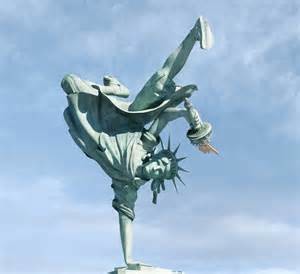
Relocating
to Canada
Supernatural stories and diplomatic missives have recently surrounded the Statue of Liberty. First, a man claimed to have captured three UFOs in a photo of the Statue of Liberty. Then, according to the Washington Post the statue gave Senator Cruz the middle finger after he made disparaging remarks about New York values. On the campaign trail, Donald Trump who resented the attention on his rival told the Statue of Liberty to reject all Muslims.
Lately, the buzz has been that the French are insisting on taking back their 1886 historic gift to America and to relocate the Statue of Liberty to Canada. It turns out that the spirit of the sculptor Auguste Bartholdi is demanding it. Why would Bartholdi treat us like modern Hamlets? What have we done that he would appear as a Parisian apparition demanding a Hamlet-like action?
Without Trial and No Evidence—by Ayala Emmett*
 Israelis, human rights organizations, and the United Nations call to end the practice of administrative detention. This practice has recently taken on a face and a name of a Palestinian journalist, Mohammed al-Qiq from the village of Dura. Al-Qiq, who was arrested and held without charges, demanded a trial to end his detention. When his request was denied al-Qiq went on a hunger strike that today Thursday, February 17 is on its 84th day. His hunger strike has revealed the cruelty of the process in which detainees are powerless to seek legal justice and exposed in full public view the horror of their use of hunger as a last resort.
Israelis, human rights organizations, and the United Nations call to end the practice of administrative detention. This practice has recently taken on a face and a name of a Palestinian journalist, Mohammed al-Qiq from the village of Dura. Al-Qiq, who was arrested and held without charges, demanded a trial to end his detention. When his request was denied al-Qiq went on a hunger strike that today Thursday, February 17 is on its 84th day. His hunger strike has revealed the cruelty of the process in which detainees are powerless to seek legal justice and exposed in full public view the horror of their use of hunger as a last resort.
Hammered Work—by Michael Aronson

made from a
sing piece of gold.
We read in this week’s Torah portion, “You shall make a lampstand [menorah] of pure gold; the lampstand shall be made of hammered work; its base and its shaft, its cups, calyxes, and petals shall be of one piece.” (Shemot 25:31). The text emphasizes that all of the structural and aesthetic elements of the menorah are a part of its being. The menorah is one, constructed as an essential unity and not from diverse prefabricated parts.
How difficult would it be to carve a menorah out of a block of solid gold? Perhaps, when God chose Bezalel and Oholiav (Parshat Ki Tissa), He helped them see the menorah within the raw material. They knew what to do on instinct. This would have made things easier.
Charitable Gifts in the Exodus Journey—by Ayala Emmett
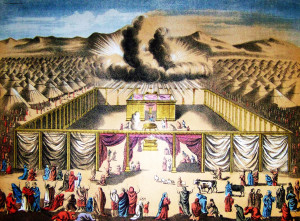
For the Israelites, a multitude of former slaves, coming out of Egypt was a time in which they had to transform themselves into a unified, covenantal and ethical community. No single act on the journey sealed the deal of becoming a collective with common ties, not the dramatic exodus from Egypt, nor the miraculous parting of the sea, not even receiving the Ten Commandments; yet each act provided a necessary layer for the process of becoming unified.
Last week’s Torah reading Exodus 21-24 offered a signature act in community making as the Israelites entered a covenantal relationship with God and said in one voice “we will do.” In that historic moment the people affirmed their relationship with God and agreed to be an ethical community, to follow a set of rules and laws that would structure their personal and collective life. A critical element in becoming an ethical community was the reminder to the Israelites that they were strangers in the land of Egypt and that obligated them forever to treat with fairness and compassion the stranger, the orphan, the widow and by extension the marginalized, refugees, undocumented migrants, people with disabilities and all those who are victimized and powerless.
